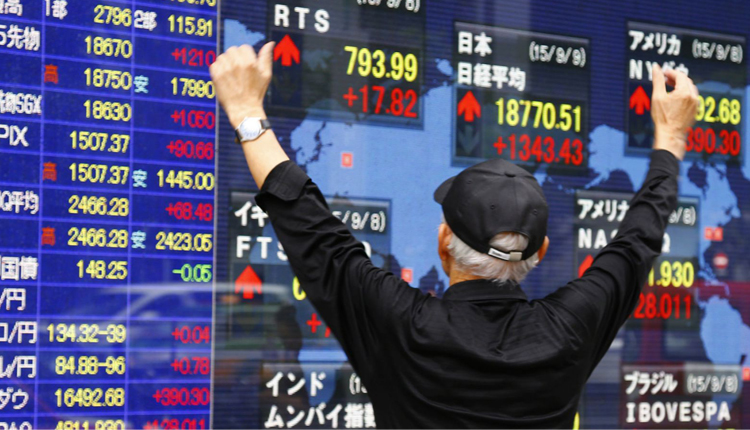Markets in Asia edged higher on Monday, shrugging off the cautious mood seen earlier as investors focused on a mix of trade tensions and a landmark meeting between U.S. President Donald Trump and North Korean leader Kim Jong Un.
Japan’s Nikkei 225 turned more positive through the session, with the index trading higher by 0.65 percent amid broad gains. The move higher was led by the Topix oil and coal products subindex, which rose 1.62 percent, with gains also seen in the retail, technology and banking sectors.
Elsewhere, South Korea’s benchmark Kospi rose 0.55 percent as manufacturing names advanced. Daewoo Engineering and Construction was up 5.02 percent and Hyundai Cement popped 8.19 percent.
Hong Kong’s Hang Seng Index added 0.31 percent, but mainland stocks were downbeat. The Shanghai composite slipped 0.26 percent but was off its intraday low as banks and the energy sectors slipped.
MSCI’s broad index of shares in Asia Pacific excluding Japan edged higher by 0.27 percent in Asia afternoon trade. Markets in Australia, meanwhile, were closed on Monday.
Investors kept an eye on trade tensions between the U.S. and its traditional allies, including Canada and the European Union. U.S. President Donald Trump on the weekend withdrew his support for a G-7 declaration and criticized Canadian Prime Minister Justin Trudeau for being “dishonest and weak.”
The Trump administration had applied tariffs on aluminum and steel tariffs on other G-7 members ahead of the G-7 summit last week. German Chancellor Angela Merkel said the EU was preparing its own countermeasures against the U.S., Reuters reported.
“The G-7 meeting over the weekend did not bode well for risk sentiment … [a]lthough market reaction was mainly constrained to the Canadian dollar,” said OCBC Bank analysts in a morning note.
Meanwhile, a planned summit between Trump and North Korean leader Kim Jong Un that’s taking place in Singapore on Tuesday is expected to take center stage. Both arrived in the country on Sunday and are set to make history as the first sitting leaders of their respective countries to meet face-to-face.
Most analysts do not think markets will be substantially affected by the meeting.
“Although the ‘Capella’ summit in Singapore is capturing public attention, the direct impact on markets is likely to be limited,” said Tai Hui, chief market strategist for Asia Pacific at J.P. Morgan Asset Management, adding that central bank meetings are likely to prove more critical this week.
The Federal Reserve, European Central Bank and Bank of Japan are due to meet in the days ahead. The Fed is expected to announce an interest rate hike and the ECB has said it will be discussing how it will wind down its asset-purchasing program.
U.S. stocks closed slightly higher on Friday, with major indexes finishing the week higher despite caution over trade-related tensions playing out at the G-7 summit, which concluded on Saturday. The major averages rose at least 1.2 percent for the week.
The gains notched stateside on Friday were in contrast to declines seen in European and Asian markets in the last session, with the pan-European Stoxx 600 slipping 0.21 percent. MSCI’s index of shares in Asia Pacific excluding Japan had fallen more than one percent in the previous session.
The dollar was a mostly steady against a basket of currencies, with the dollar index standing at 93.491 at 12:00 p.m. HK/SIN. Against the yen, the greenback edged up to 109.72.
Source: CNBC
